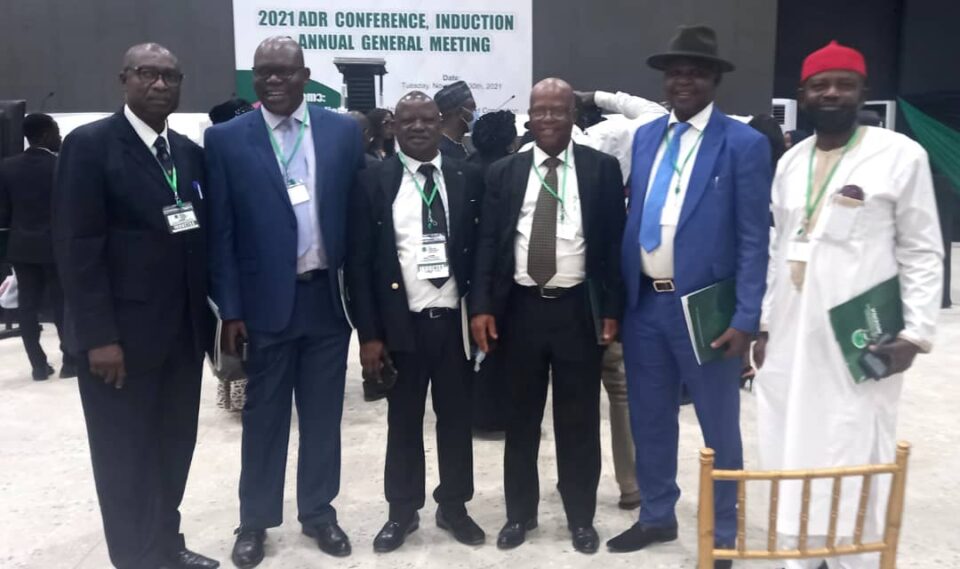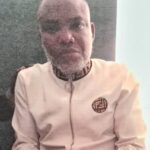*As Prof. Jega advocates use of ADR in politics
By John Okeke
No fewer than 1,641 new members were inducted into the Institute of Chartered Mediators and Conciliators (ICMC) at its Annual General Meeting and Alternative Dispute Resolution Conference held in Abuja on Tuesday.
A breakdown of the figure, showed that 84 of the inductees were Fellows, 43 Members, while 1,514 became Associate members.
ICMC is the umbrella body of ADR experts that regulates and sets standard for the practice of Mediation and Conciliation.
It also trains, certifies and inducts candidates as professional disciplines and fields of human endeavors.
The conference wirh theme: “Dialogue, Mediation and Conciliation: A Panacea for Managing Polarized Societies” was organised by ICMC with support from GIZ Pro-Poor Growth and Promotion of Employment in Nigeria Programme.
The aim of the conference according to the organisers is “to explore the role of dialogue, mediation and conciliation as tools for dousing the spiraling ethno-religious and socio-economic tensions bedevilling the country”.
Speaking, the acting Cluster Coordinator, Program coordinator for Deutsche Gesellschaft fur Internationalle Zusammenarbeit (GIZ), Mr Markus Wauschkuhn, said that dialogue, mediation and conciliation should be adopted as a tool for dousing the spiraling ethno-religious and socio-economic tensions in Nigeria.
According to the Coordinator, Nigeria’s economy requires reforms for commercial dispute resolution, as well as to enhance the capacity of mediators across the country.
“Our activity in Nigeria is aimed at supporting economic development and strengthening the micro, small and medium enterprises.
“This conference seeks to explore the role of dialogue, mediation, and conciliation as tools for dousing the spiraling ethno-religious and socio-economic tensions in Nigeria,” he said.
In his remarks, the President of ICMC, Dr Agada John Elache, said that the goal of the institution was to safeguard the nation from the scourge of conflict, ethnic and parochial misunderstandings.
According to him, a diverse, conflict ridden country, such as Nigeria, with a preponderant tendency to litigate virtually everything, stands to gain a lot from increased utilization of ADR methods and approaches beyond just commercial and business disputes.
The conference featured break out sessions with key topics including “Innovation and Reforms to Improve the System for Commercial Dispute Resolution in Nigeria” and “Aligning Mediation Skills Accreditation and Certification Trainings with Mediation Practices for Peace Building, Security and Sustainable Development in Nigeria”.
Meanwhile, Former Chairman of the Independent National Electoral Commission (INEC), Attahiru Jega has called for a viable dispute and conflict resolution system to address Nigeria’s diverse and polarized society, politics, and attendant conflicts and crises, which threaten the country’s existence.
Speaking at the 2021 annual general meeting of the Institute of Chattered Mediators and Conciliators (ICMC Nigeria) in Abuja on Tuesday, Jega noted that disputes which are allowed to begin with litigation in courts of law, become cumbersome, time-consuming and expensive due to court delays, use of technicalities by lawyers thereby stalling proceedings.
The former INEC chairman, who was represented by Loius Brown Ogbeifun, past president of the institution, said instead of allowing misunderstandings, disagreements and contestations to degenerate into litigations and or assume violent dimensions, many countries have increasingly introduced enhanced alternative dispute resolution (ADR) mechanisms to resolve conflicts.
“Nigeria is regrettably, a relatively polarized and conflict-ridden country. It is, additionally, an intensely litigious society, especially on civil and commercial matters and relations, whether in respect of family, land, business or even political, especially electoral, matters.
“Unmitigated conflicts more often than not, poison inter-personal relations, negatively affect inter-personal and intergroup relations and in general negatively impact upon peaceful coexistence in a very diverse polity, such as Nigeria.
“As we strive to encourage and ensure peaceful resolution of disputes in the Nigerian polity in particular and political economy in general, there is need to increasingly deploy alternative dispute resolution (ADR) institutions, processes, procedures and mechanisms, because of their advantages in contrast to ligation in courts,” he said.
According to him, Nigeria’s political economy requires a concerted effort to strengthen and entrench the effective use of ADR, with its components of dialogue, mediation, negotiation and conciliation.



